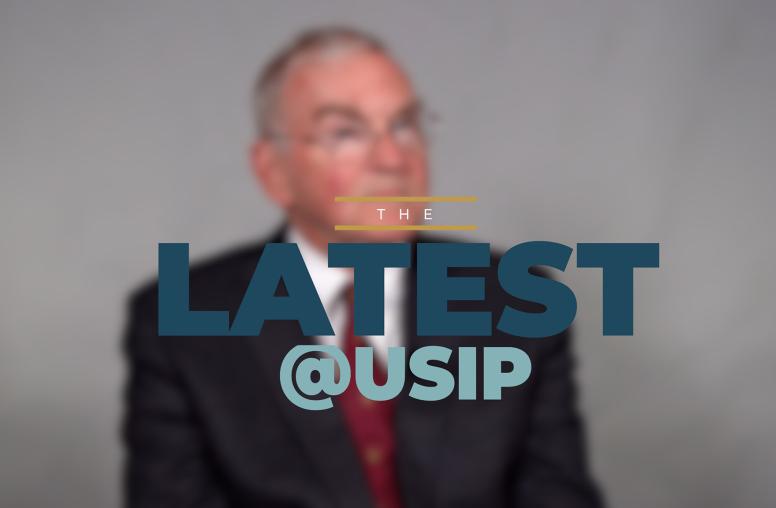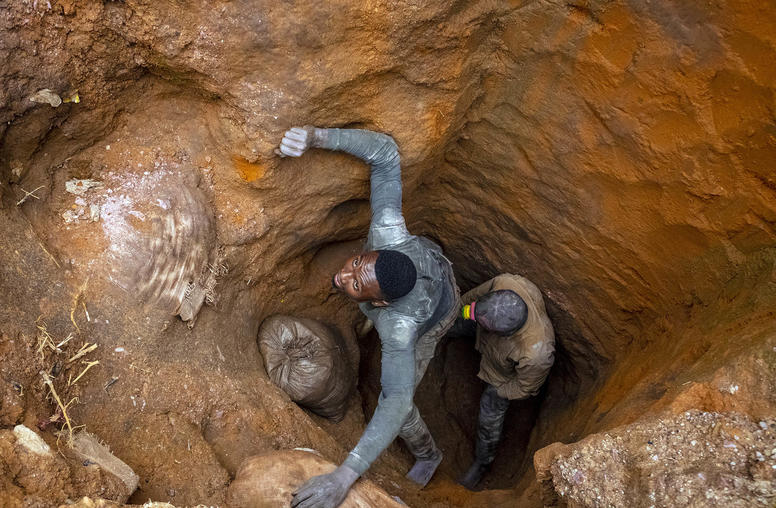Getting Rights… Right…
To mark International Human Rights Day 2011, The George Washington University, the U.N. Global Compact U.S. Network, and the U.S. Institute of Peace will host a day-long conference on the Guiding Principles on Business and Human Rights.
 To mark International Human Rights Day 2011, The George Washington University, the U.N. Global Compact U.S. Network, the Heinrich Boel Foundation, and the U.S. Institute of Peace hosted a day-long conference on the Guiding Principles on Business and Human Rights.
To mark International Human Rights Day 2011, The George Washington University, the U.N. Global Compact U.S. Network, the Heinrich Boel Foundation, and the U.S. Institute of Peace hosted a day-long conference on the Guiding Principles on Business and Human Rights.
These principles, approved by the U.N. Human Rights Council in June, are designed to help a broad range of stakeholders monitor the impact of business activities on human rights. These guidelines clarify the human rights responsibilities of the business community and offer recommendations on effective implementation, particularly in fragile environments.
Speakers representing business, civil society, the U.S. government and academia focused on practical approaches to implementing the guiding principles.
9:00-9:10 a.m. Welcome
- Professor Stephen Smith, Director, IIEP
- Dave Berdish, Manager of Sustainable Business Development, Ford Motor Company
9:10- 9:45 a.m. David Arkless, President and CEO, Global Corporate and Government Affairs, “Manpower, The Business Case for Human Rights: Manpower’s approach”
9:45- 11:15 a.m. Panel 1: Addressing the Problems of Slavery and Human Trafficking:
Moderator: Pamela Passman, President and CEO, CREATE
- Brenda Schultz, Manager, Responsible Business, Carlson Hotels Worldwide
- Samir Goswamy, Director of Corporate Responsibility, Rule of Law, Lexis Nexis
- Jean Baderscheider, Vice President, Global Procurement, Exxon Mobil
- Karen Stauss, Director of Programs Free the Slaves
11: 15-11:30 a.m. Coffee Break
11: 30-12:00 p.m. General Discussion: What should policymakers do to encourage corporate adoption of the GPs?
Moderator: Susan Aaronson, Associate Research Professor of International Affairs, GWU
- Procurement set asides?
- Education?
- Corporate governance rules?
12:00-1:00 p.m. Maria Otero, Under Secretary of State for Democracy and Global Affairs, “The Department of State and the Guiding Principles: The US approach to Business and Human Rights”
1:00- 2:00 p.m. Luncheon Keynotes:
- Ursula Wynhoven, Head, Policy and Legal, UN Global Compact “The Case for Supporting Human Rights”
- Gerald Pachoud, Senior Advisor to the Assistant Secretary General, UN and former Senior Advisor, Special Representative on Business and Human Rights, “Business and Human Rights…and States”
**MOVE TO ROOM 309**
2:05-3:35 p.m. Panel 2: How Business Should Operate in Conflict Zones
Moderator: Raymond Gilpin, Ph.D., Director, Center for Sustainable Economies, United States Institute of Peace
- Bennett Freeman, Senior Vice President for Social Research and Policy, Calvert Group
- Charlotte Wolff, Corporate Responsibility Manager, Arcellor Mittal
- Olav Ljosne, Regional Director of Communications, Africa, Shell Corporation
- Jenny Vaughan, Program Officer, Conflict Management, Mercy Corps
3:35-3:50 p.m. Coffee Break
3:50-5:20 p.m. Panel 3: General Implementation of the Guiding Principles: Is it difficult to get buy in? Is it costly? What recommendations or roadblocks have you found?
Moderator: Susan Aaronson
- Mark Nordstrom, Senior Labor & Employment Counsel, General Electric
- Dave Berdish, Manager of Sustainable Business Development, Ford Motor Company
- Motoko Aizawa, Sustainability Advisor, International Finance Corporation
- Meg Roggensack, Senior Advisor for Business and Human Rights, Human Rights First
5:20 p.m. Conference End
Conference Organized by Dr. Susan Aaronson and Kyle Renner, GWU, Dr. Raymond Gilpin and Amanda Mayoral, USIP. Thanks too to Ursula Wynhoven and the staff of the UN Global Compact for their help. Ford Motor Company and the Boell Stiftung provided generous financial support to ensure a free conference.



